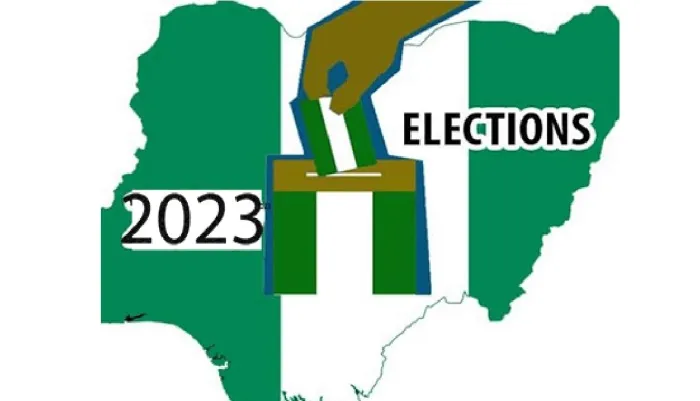On February 25, 2023, Nigeria’s 93,469,008 eligible voters will select new leadership for the country from among the 36 presidential and vice presidential candidates for the offices of president and vice president; and the 4,223 candidates contesting for the 469 National Assembly legislative positions.
The 4,223 consist of 1,101 candidates vying for the 109 senatorial seats and 3,122 candidates for the 360 seats in the House of Representatives.
On March 11, 2023, voters will select from the 837 candidates contesting in the governorship elections holding in 28 states and the 10,240 candidates vying for 993 State Houses of Assembly seats.
And as the nation goes to vote at the 176,846 polling units, the quest for free, fair and credible elections largely rests on the shoulders of these 15,336 candidates, especially in their conduct before, during and after the elections. Their actions, words, and attitudes, both as individuals and as members of political parties, will determine the tempo of the elections.
So far, the campaigns are in full swing, with reports of election-related violence involving the use of thugs to attack opponents, a standard feature of Nigerian politics that ought not to be. Indeed, numerous violent incidents have already marred the campaigns in the run up to the elections.
According to the National Security Adviser, retired Major General Babagana Monguno, between October 8 and November 9, 2022, Nigeria recorded 52 acts of political violence across 22 states of the federation. And as the elections draw nearer, these are becoming regular occurrences. This shows a lack of respect for the law, as under the Electoral Act, violence connected to elections is punishable with up to four years’ imprisonment, a fine of N500,000 or both.
And instead of politicians sticking to healthy issue-based campaigns, thereby bringing civility and decency into public discourse and debates, Nigerians have been inundated with personal attacks, insults and incitements. These run counter to the terms of the Peace Accords signed by National Peace Committee (NPC), the leaderships of the political parties and the leading presidential candidates. It committed all political parties, presidential candidates and their spokespersons to run campaigns free of violence and the use of words bordering on insults, incitement, or outright inflammatory rhetoric.
And in furtherance of this, the chairman of the National Peace Committee and former Head of State, retired General Abdulsalami Abubakar, on January 20, 2023, met with presidential candidates and other stakeholders on breaches to the peace accord, imploring them to stop overheating the polity and causing tension in the country. He urged them to stick to issue-based campaigns and refrain from mudslinging and other inciting comments that heat up the polity.
In pursuit of its goals, the NPC intends to sign the second peace accord by next week, where it hopes to commit candidates to accepting the outcome of the votes as long as they are adjudged to be free, fair and credible and as announced by INEC.
Indeed, it behoves all politicians and their political parties to ensure that the labours of the National Peace Committee and all lovers of Nigeria are not in vain. This they should do by ensuring that the electoral process takes place in an environment where calm and respect for the rights of others prevail. They must live up to their pledges by strongly committing to peaceful, credible, inclusive, and transparent elections
Desperation should not be part of the campaigns, after all, elections are not a do-or-die affair, as whoever wins is part of us, and Nigeria would continue to exist. The 15,336 candidates and their political parties should talk to their supporters to douse the rising tension among the citizens. They must realise that violence leaves scars that, instead of healing easily, deepen the nation’s divisions, which makes it difficult to govern effectively.
To this end, Daily Trust enjoins all politicians to be abreast of all aspects of the Constitution of the Federal Republic of Nigeria, 1999, as amended, the Electoral Act 2010, as amended, and the Independent National Electoral Commission (INEC) Rules and Regulations, as these constitute the legal framework that regulates our electoral process. Both politicians and their arrowheads should also be conversant with the specifics of the Electoral Act, particularly Part VIII, which deals with the procedure governing election petitions.
In addition, our politicians should take the lead in mobilising voters to the polling booths to stop the perennial issue of low voter turnout. This is one of the ways they would be helping the electoral process.
The quest to achieve victory at all costs through ‘all means necessary’ including “do-or-die,” must be jettisoned.
The 2023 election cycle will be Nigeria’s seventh consecutive general election since the return to uninterrupted democratic system of government in 1999.
Therefore, it is not only important for the enthronement of good governance in the country, it will also advance the nation’s democracy and help it reassert itself as a leader in the West African sub-region, the African continent, and in global affairs.
As the nation witnesses the last days of the campaigns, politicians should concentrate on bringing voters to the polling units, exhort one another, their spokespersons and representatives, to shun violence and personal attacks. This election should truly reflect the wishes of the majority of Nigerians.

 Join Daily Trust WhatsApp Community For Quick Access To News and Happenings Around You.
Join Daily Trust WhatsApp Community For Quick Access To News and Happenings Around You.

